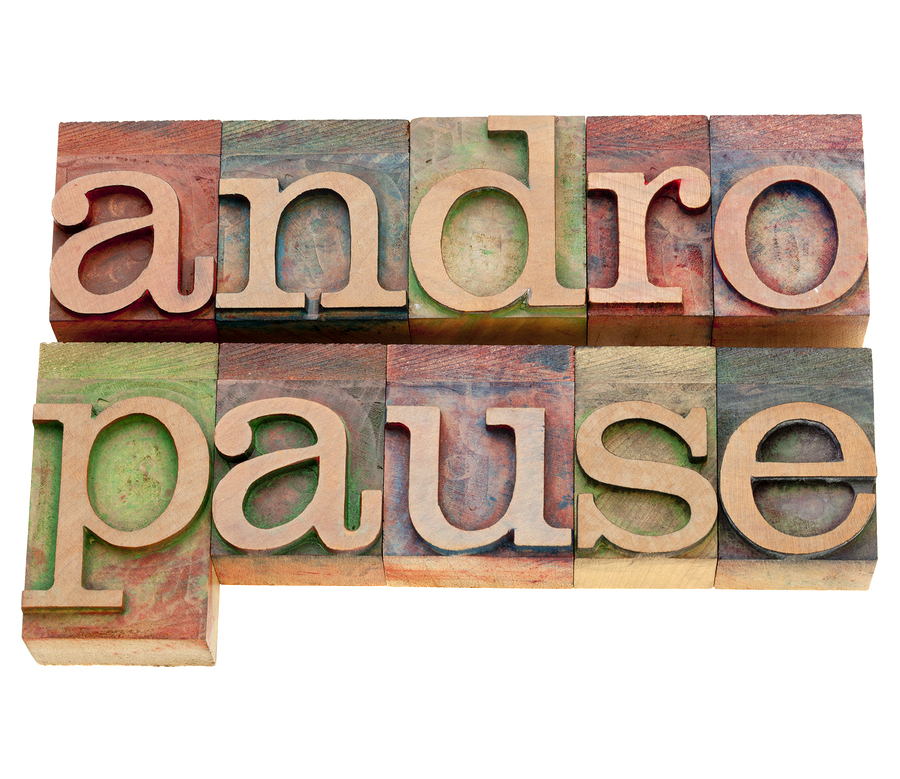The Andropause
The menopause is such a hotly debated area of women’s health that men are often forgotten about.
In fact, men go through physical and hormonal changes as they age too. The Andropause is another name for Testosterone Deficiency Syndrome.
Testosterone begins to decrease from around the late 20’s and continues to fall for the rest of your life. It is a hormone which is produced from the testes and needed for strength, awareness, concentration, heart and bones all functioning correctly at the right level. Its importance is often greatly underestimated and may be linked to diabetes, obesity, osteoporosis and heart disease.
Symptoms of Testosterone Deficiency include:
- Tiredness and fatigue
- Night sweats
- Change in body shape, in particular, gaining weight around the middle
- Changes in sexual function
The symptoms are often not recognised and whilst being deficient in testosterone is unlikely to be fatal, the diseases it is linked to may well be. If you notice any of the above symptoms, ask your GP for a blood test to check your levels.
Although not specifically linked to diet as testosterone is produced in the body, dietary factors can have an impact on the diseases it is associated with. For example, a healthy balanced diet with regular exercise may reduce the risk of heart disease, obesity and diabetes.
Top tips for healthy living:
- Reduce alcohol intake
- Cut down or, ideally stop smoking
- Eat at least 5 portions of fruit and vegetables a day
- Include 1 portion of oily fish a week
- Take plenty of regular exercise
At present, the condition is lacking research especially when it comes to the influence diet may have on the condition. However, there are some foods which are suggested to potentially benefit sufferers and help increase production of testosterone. Eating a healthy balanced diet which has a broad range of foods will ensure you have all the nutrients you need as the body requires a variety of vitamins, minerals, antioxidants and essential fatty acids for optimum health. The following foods are thought to help increase testosterone production:
- Oysters- oysters are a great source of zinc and according to the National Institute of Health (NIH), zinc is essential for testosterone production and the maintenance and regulation of sperm. Zinc is needed by the body for the reproductive and endocrine systems
- Brazil nuts- nuts are full of health benefits but Brazil nuts are a rich source of selenium which is an antioxidant. Just 30g of Brazil nuts a day will provide you with 10 times the daily amount of selenium. The NIH reports that selenium can boost testosterone levels and sperm motility in men.
- Avocados- avocados are full of essential fatty acids as they have a much higher fat content than any other fruit. They are considered a great dietary way of increasing testosterone. Fat is an essential part of the diet for maintain hormone hormonal balance throughout the body.
You may also want to include more of the following foods in your diet which are high in zinc:
- Liver
- Beef
- Lamb
- Chicken
- Eggs
- Pulses
- Cheese
Here is a suggested menu plan for a day including the foods above:
Breakfast: 2 poached eggs on wholemeal toast or a bed of spinach
Snack: 30g Brazil nuts
Lunch: Chicken and avocado salad
Dinner: Beef chilli with rice and vegetables
This condition is hugely under discussed but is affecting thousands of men out there. Don’t be afraid of speaking to your GP and potentially changing how you feel for the better.
Written by Hannah Bailey BSc from Wise Choice Nutrition
If you would like more information, visit www.wisechoicenutrition.co.uk or email [email protected]
Disclaimer
All content on Silversurfers.com is provided for general information only, and should not be treated at all as a substitute for the medical advice of your own doctor or any other health care professional. Silversurfers.com will not be responsible or liable for any diagnosis made by a user based on the content on www.silverhairs.com and we are also not liable for the content of any external websites or links from or to Silversurfers to any other websites. Please always consult your own doctor if you’re in any way concerned about any aspect of your health.
Latest posts by Hannah Bailey (see all)
- Eating for the menopause - December 1, 2014
- Chips and Prostate Cancer - February 19, 2013
- Eating with diabetes - January 18, 2013
- The Andropause - December 19, 2012
- Healthy eating can reduce symptoms of depression - October 12, 2012























